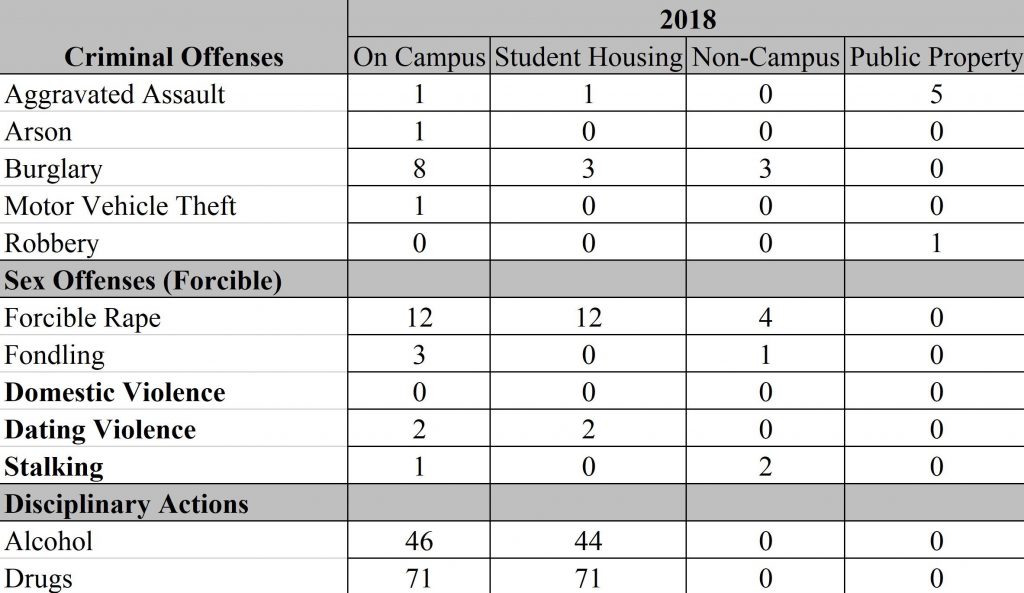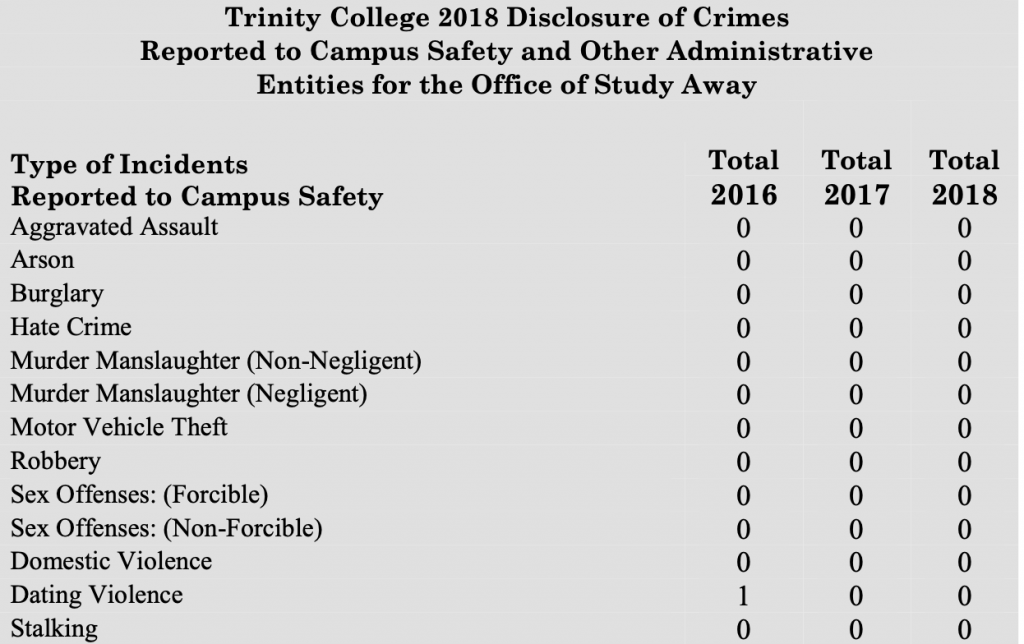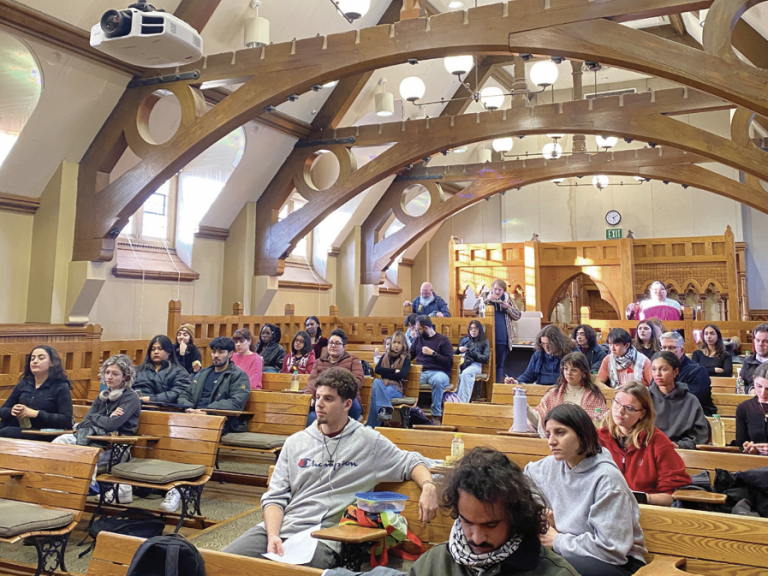Daniel Nesbitt ’22
News Editor
The Tripod has taken a deep dive into Campus Safety crime reporting and Trinity’s legal obligations under the Jeanne Clery Disclosure of Campus Security Policy and Campus Crime Statistics Act, the guiding federal law on the matter. According to the Clery Center, the Clery Act, signed into law in 1990 by President George H. W. Bush, functions as “a consumer protection law that aims to provide transparency around campus crime policy and statistics.”
The main requirement of the Clery Act is that all institutions receiving federal funding must publish and distribute a public annual security report (ASR) to students and employees on Oct. 1 of each year. Most importantly, the Clery Act requires that this ASR contains campus crime statistics for the previous three calendar years classified by both the nature of the offense and the location at which the offense took place.
The Tripod, in investigating Trinity’s most recent Clery Report, questioned the College on its reporting of study abroad data, which is reportable under the Act’s provisions. The Tripod found that limitations in the scope of the Clery Act’s geography may impact the accuracy of potentially reportable data. For example, in February 2018, the Tripod reported that three Trinity students abroad in Barcelona were mugged in early January of the same year. However, the ASR stated that the Office of Study Away reported zero incidents of any category. When asked about this discrepancy, Heavren clarified that “in this case, there was a Clery reportable crime but it did not occur in the Clery geography,” thus it was not included in the full report.
However, as the Tripod found, due to the language of the Clery Act, it is possible that those incidents, particularly those that affect students studying abroad, may go unreported in the ASR. For students interested in studying abroad, or for parents concerned for their children’s safety while studying abroad, other alternatives to the ASR do exist, indicated Heavren.


“Parents and prospective students,” Heavren remarked, “should speak directly with the Office of Study Away or the department sponsoring the travel to get the most accurate and current information regarding the health and safety of the area they are planning to travel to.” The Tripod inquired with Trinity regarding foreign institutions legal obligations under the Clery Act to report the data they collect to the College, however, the Tripod did not receive an answer to that specific question.
Heavren did clarify that “crimes in Hartford and abroad are included in the Annual Security Report if they are Clery Crimes and if they occur within the defined Clery geography.”
Under the terms of the Clery Act, there are a myriad of different types of offenses. The first category of offenses is Criminal Offenses which includes, criminal homicide, sexual assault (rape, fondling, incest, and statutory rape), robbery, aggravated assault, burglary, motor vehicle theft, and arson. The second category of offenses is Hate Crimes, which can consist of any of the offenses listed under Criminal Offenses in addition to larceny-theft, simple assault, intimidation, and destruction of property. The third category of offenses includes domestic violence, dating violence, and stalking, all of which were added to the Clery Act in 2014. Finally, the fourth offense category includes weapons law violations, drug abuse violations, and liquor law violations.
There also exist four different geographic categories under the Clery Act: On-Campus, Residence Halls, Non-Campus, and Public Property. The On-Campus category simply refers to an institution’s main campus and facilities, while the Residence Halls category is a subsection of the On-Campus category. The Non-Campus category, according to the Clery Center, “refers to specific properties owned or controlled by the campus or by a student organization officially recognized by the campus. Non-Campus does not automatically refer to all surrounding neighborhoods of a college campus, nor does it include all properties that students happen to rent.” Finally, the Public Property category includes “public property immediately adjacent to, within, or surrounding one’s on-campus geography.”
Campus Safety is required by law to collect and report the relevant crime data. “Reports, domestically or internationally,” Director of Campus Safety Brian Heavren explained, “are collected through direct reporting from those involved or having knowledge of the incident to Campus Safety, reports made to other college departments and forwarded to Campus Safety, or reports made directly to law enforcement.”
These data are compiled and reported in Campus Safety’s ASR. The most recent report, published Oct. 1, 2019, provides detailed crime statistics for 2016, 2017, and 2018.




+ There are no comments
Add yours